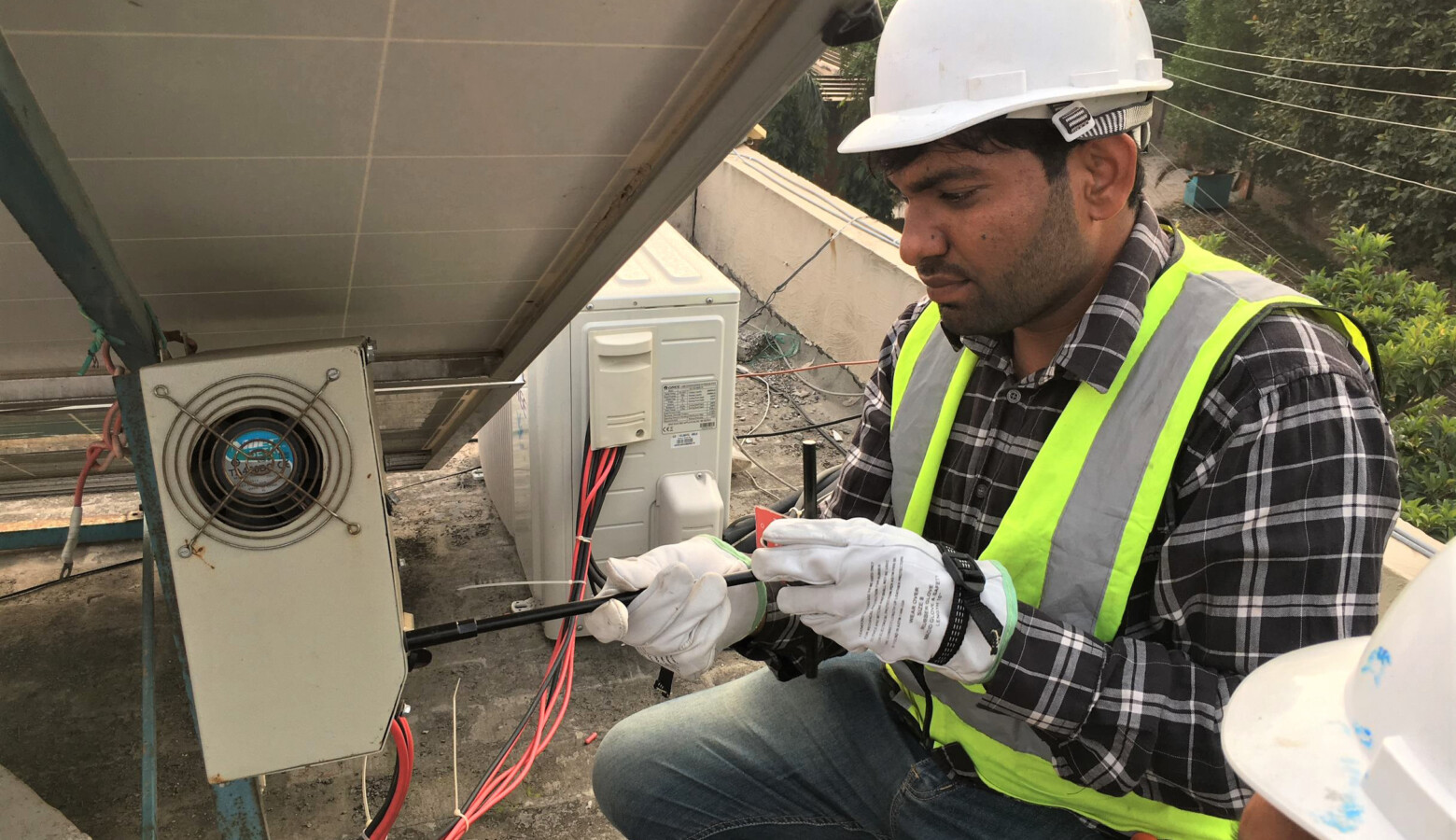Solar Advocates Hope Indiana Will Extend Higher Net Metering Rates Before They Expire

Environmentalists hope the state will extend net metering rates for solar before time runs out. Net metering gives people with solar panels credits for any excess energy that they deliver to the grid. That was the topic of Friday’s Renewable Energy Day event.
Four years ago, Indiana passed a law to slowly decrease the amount solar customers get for energy they generate — from the higher retail rate to the lower wholesale rate. Solar advocates say the law makes solar less affordable for homeowners and stifles job growth in the state’s solar industry.
Tim Phelps is with the Indiana Conservative Alliance for Energy. He said Hoosiers should be able to receive a fair market value for the power they generate.
“In a state where conservatives have enormous majorities, it should be easy for us to come to them with a pro-free market, pro-energy choice argument,” Phelps said.
Denise Abdul-Rahman is with the Indiana NAACP’s environmental climate justice program. The NAACP created a solar job training program and helped fund the installation of solar panels on a community center in Evansville this year.
“We call for a mandatory net metering policy that allows for solar systems up to 2000 kilowatts and mandatory legislation that will give minorities and women-owned businesses equitable access to green jobs and clean energy opportunities along with a fair chance. We also stand to ask too, for an enactment of mandatory legislation that will allow communities to take advantage of solar energy — whether each have solar panels or not,” Abdul-Rahman said.
Indiana has a goal of having 10 percent of the state powered by clean energy by 2025. But Abdul-Rahman said that standard should be 25 percent clean energy by 2025 — and it should be mandatory. Indiana is one of only seven states that has a voluntary renewable portfolio standard — 13 states haven’t set any goal at all.
READ MORE: How Do I Follow Indiana’s Legislative Session? Here’s Your Guide To Demystify The Process
Join the conversation and sign up for the Indiana Two-Way. Text “Indiana” to 73224. Your comments and questions in response to our weekly text help us find the answers you need on COVID-19 and other statewide issues.
Lawmakers plan to look into the role of rooftop solar as part of a state energy task force, but won’t finalize their recommendations until after higher net metering rates expire.
“My bill would extend net metering so we can see what the recommendations will be,” said Sen. Shelli Yoder (D-Bloomington).
Yoder’s bill is one of three in this year’s legislative session that would either extend those rates by a few years or amend part of the law that allows utilities to phase down those rates earlier. The other two are Senate Bill 249 and House Bill 1394.
Yoder urged attendees at Renewable Energy Day to contact their legislators and ensure her bill gets a hearing.
Contact reporter Rebecca at rthiele@iu.edu or follow her on Twitter at @beckythiele.
Indiana Environmental reporting is supported by the Environmental Resilience Institute, an Indiana University Grand Challenge project developing Indiana-specific projections and informed responses to problems of environmental change.

